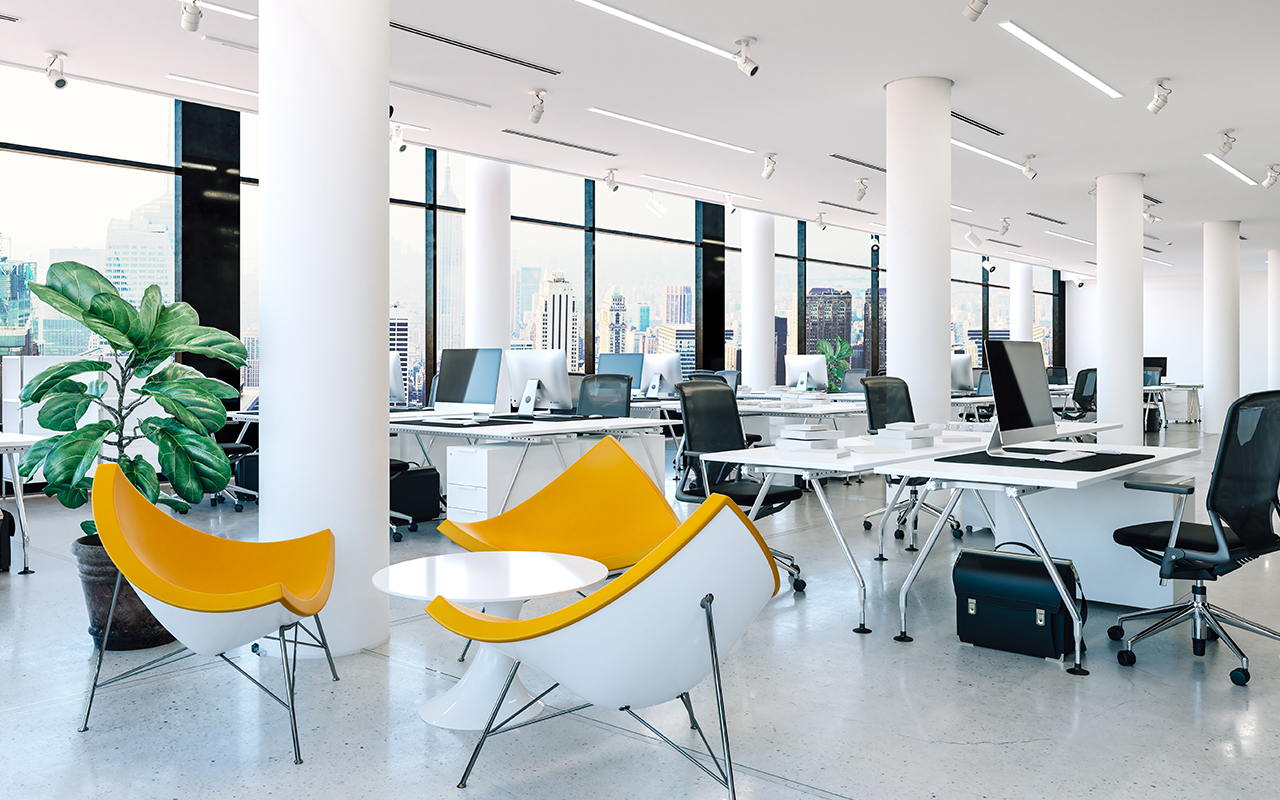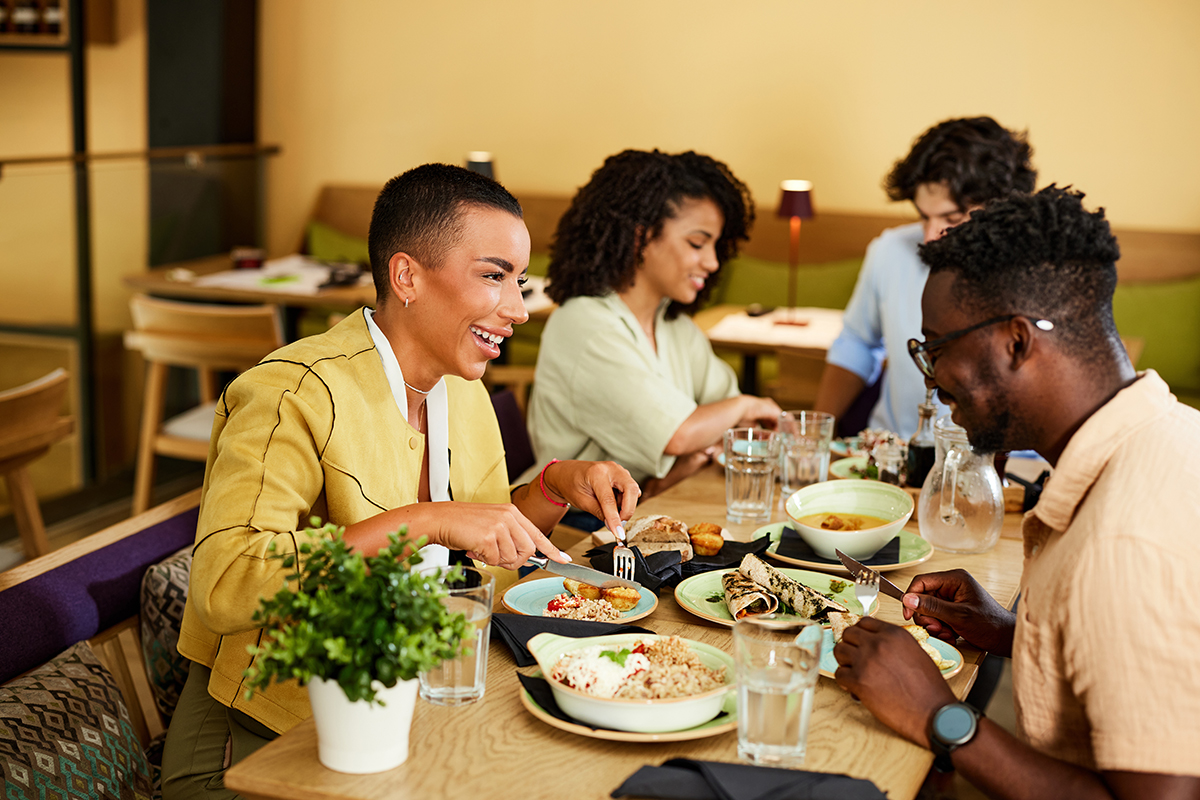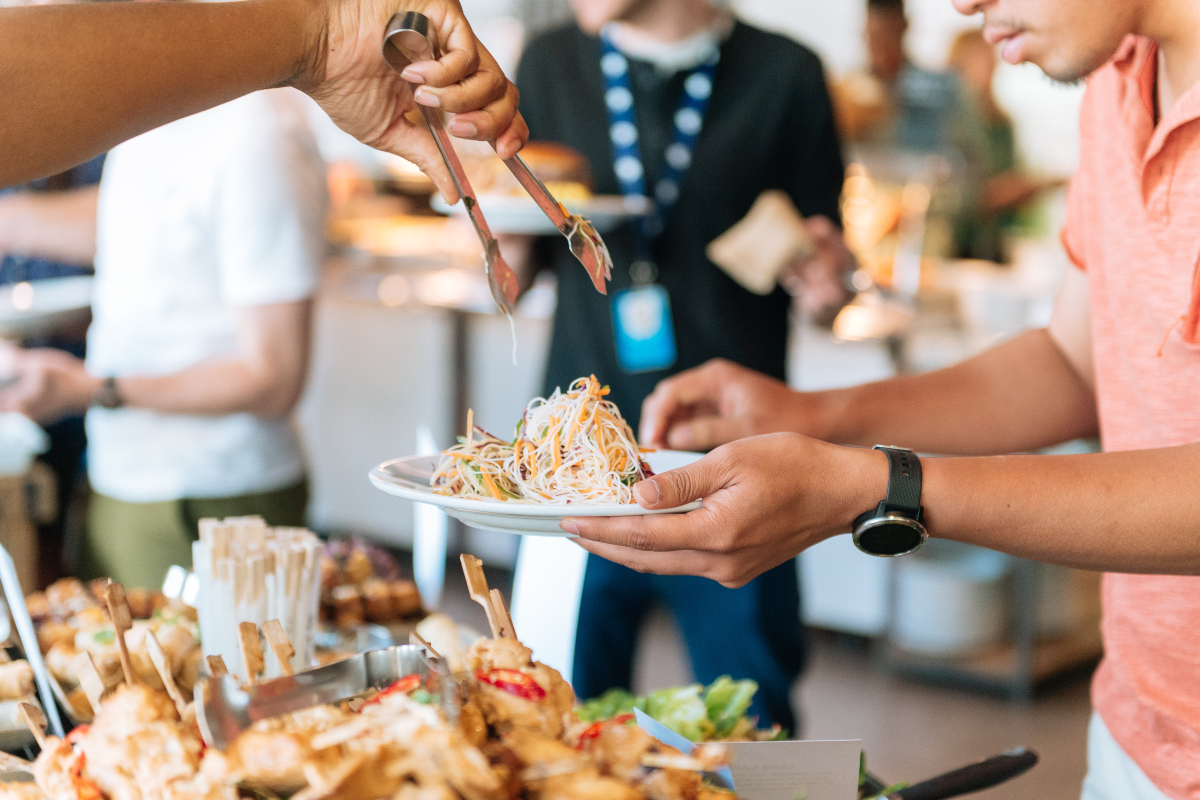The SMARTBUILDINGS2021 London conference was jam-packed with ideas and innovations. Never has the future of the workplace felt so cutting-edge. And who better to run the event than Worktech Academy? – the thought leaders on how we’ll be working tomorrow. As it turns out, those futuristic AI buildings only seen in sci-fi films are just around the corner.
As all veteran conference-goers know, conferences are a hungry business. All that brain work grappling with new ideas (and trying to remember the names of other attendees) requires strong coffee and energising food.
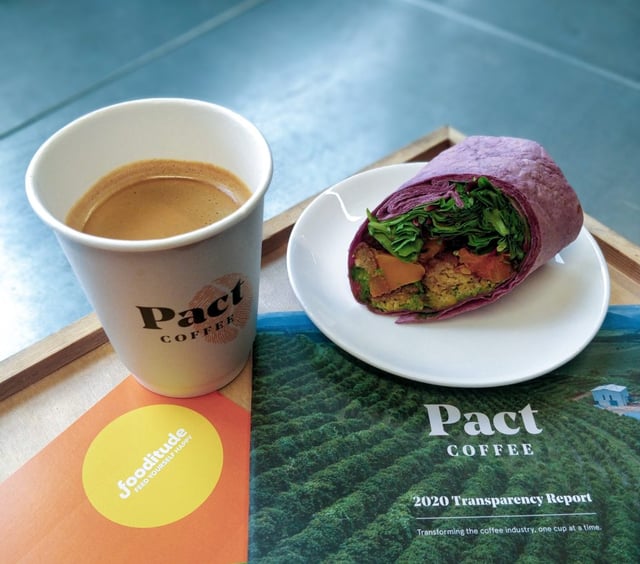
We jumped at the chance to cater for this event; keeping professionals at the top of their game with tasty and energising food is what we do best. So it was an absolute thrill to collaborate with Pact Coffee to provide a complete catering package. Not only because they make proper coffee, but because they source their beans through direct trade and are a trailblazing sustainability brand.
Before we delve into the event’s discussions, it’s good to pinpoint what a smart building is. So what makes them so smart, eh? Siemens defines smart buildings as:
“Smart buildings interact with the people, systems and external elements around them. They learn from past experiences and real-time inputs. They adapt to the needs of the people and the businesses within them by increasing comfort, efficiency, resiliency and safety.”
The talks
One of the first speakers was Ulrich Blum from Zaha Hadid Architects. He talked about the resilience of cities to evolve. Case-in-point: bars, restaurants and cafes set up outdoor seating in London during the pandemic – transforming the look and feel of the streets. Ulrich then explained how workspaces could learn from evolving cities to adapt to conditions, such as moving desks to natural light to the time of year and different teams working on new projects. With some help from electronic sensors across the workspace, facilities managers can create an optimum desk floor plan. Now that’s smart!
Next up was Miloš Halečka from Middlecap Partner to give an insight into the smart elements within the conference venue. For context, Southworks (where the conference took place) has recently been named the smartest building at the 2021 Future Proof Awards. Remarkably, the building’s tech is all integrated to manage temperature and CO2 levels. In addition, employees can use the Southworks app to find information about working areas, such as finding a quiet corner with the lowest noise levels for that all-important video call with a client.
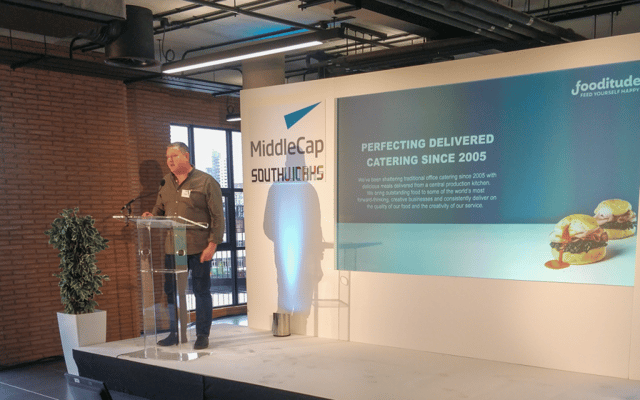
Some of our other highlights from the day include:
- Jeremy Myerson, Director at Worktech Academy, discussed the ‘The Great Resignation’ (the phenomenon of people quitting jobs and work-life since the pandemic) and how this indicates dissatisfaction with the current order of working life. He commented how workplaces ought not to feel like an “8-hour long-haul flight’, but instead a place for collaboration and comfort. He emphasised that the pandemic had created two types of employers:
– The Resolute Workers, a.k.a companies that want their staff back full time- Choice Champions, a.k.a companies that let their workers decide how they workIn a nutshell, whether an employer is a resolute worker or a choice champion – the UK’s overall workplace culture is headed for a hybrid outcome. We should look to improve workspaces and the cities themselves to win back the hearts and minds of employees.
- Kirsti Woolsey from BCG Smart Environment Group discussed the power of technology to boost performance in future of the workplace, such as monitoring meetings and encouraging participation from quieter attendees to tracking the best teams to learn their habits for success. But she also bore down on the importance of respecting employees’ privacy rights and winning their confidence in adopting new technologies. In short, smart buildings have tremendous potential to improve our working lives – but more work is needed to ensure they’re not creepy and invasive.
So, what's the future of the workplace?
Smart destination offices evoke efficiency, loyalty, and productivity from employees. In a way, they’re the perfect remedy to earning back the workforce’s trust to rejoin their colleagues in the office. Wellbeing should also be the driving force behind the development of smart buildings, not some Orwellian dystopia where individuals’ privacy is not respected. Smart buildings’ sustainability is drastically improved by instinctively managing utilities to become less wasteful. But most importantly, smart buildings can only reach their full potential if there are communities within them to spark them to life.
As technological developments reimagine the future of the workplace, employees will not want to miss out on the benefits of office life. However, top-notch workplace catering also needs to be part of the future workplace strategy. After all, serving good food to energise your team is an age-old, proven and tested way to achieve peak performance within the workplace. Together, smart workplaces combined with flexible catering will make ‘going into the office’ the preferred choice for employees and well worth the commute.
What a day! Our heads were left spinning by the end of Smart Buildings 2021. We can’t wait to serve hungry employees in smart workplaces where wellness is at the forefront.
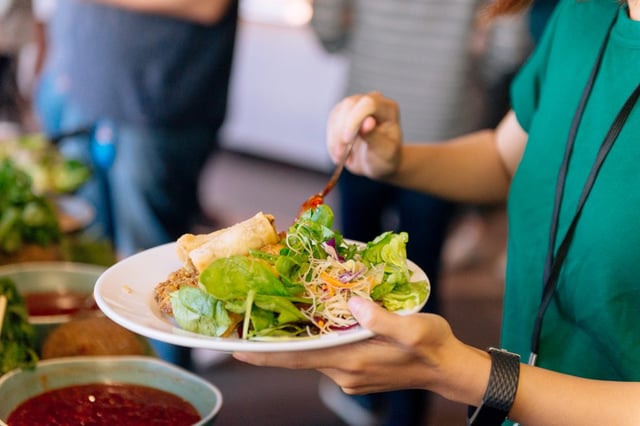
Is there a smarter way to feed your teams?
Fooditude’s delivered workplace catering offers our clients optimum flexibility and value, read more…
